Best Books on Kotlin Programming to Buy in November 2025
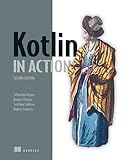
Kotlin in Action, Second Edition


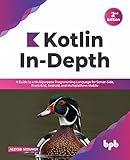
Kotlin In-Depth: A Guide to a Multipurpose Programming Language for Server-Side, Front-End, Android, and Multiplatform Mobile (English Edition)


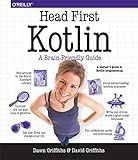
Head First Kotlin: A Brain-Friendly Guide


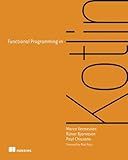
Functional Programming in Kotlin


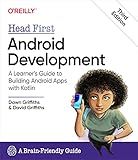
Head First Android Development: A Learner's Guide to Building Android Apps with Kotlin


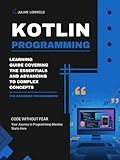
Kotlin Programming: Learning Guide Covering the Essentials and Advancing to Complex Concepts


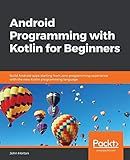
Android Programming with Kotlin for Beginners: Build Android apps starting from zero programming experience with the new Kotlin programming language


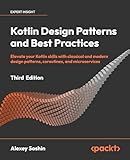
Kotlin Design Patterns and Best Practices: Elevate your Kotlin skills with classical and modern design patterns, coroutines, and microservices


To remove unresolved references in Kotlin, you can follow these steps:
- Check for any missing imports: Verify if all the necessary imports are present in your file. Kotlin requires explicit imports for external classes, functions, or variables that you want to use in your code. If any import statement is missing, add it to resolve the reference.
- Ensure correct classpath and dependencies: Make sure that the required libraries or modules are included in your project's classpath. If you are using a build tool like Gradle or Maven, ensure that the necessary dependencies are correctly specified in your build file. Refresh or rebuild your project to ensure the dependencies are resolved.
- Use proper naming and accessibility: Double-check the naming of your variables, functions, and classes. Ensure they match the names used in your code and have the appropriate accessibility modifiers (public, protected, internal, or private) as required.
- Rebuild the project: Sometimes, unresolved references can occur due to cached information or a partially built project. Try rebuilding the project to clean and rebuild all the dependencies, ensuring that any unresolved references are resolved in the process.
- Verify language version: If you are using advanced language features from a specific Kotlin language version, make sure your Kotlin compiler and runtime environment are set to the correct version. Using an older version of Kotlin may result in unresolved references to newer features.
- Analyze compatibility with Java: Kotlin seamlessly integrates with Java code. If you are referencing Java classes, methods, or variables, verify their compatibility with Kotlin. Ensure that the relevant Java libraries or modules are included and accessible in your project to avoid unresolved references.
By following these steps, you can identify and remove any unresolved references in your Kotlin code, ensuring that your code compiles and runs without any issues.
How to resolve import errors in Kotlin?
To resolve import errors in Kotlin, you can follow these steps:
- Check the import statement: Make sure that the import statement is correct and matches the class or package that you are trying to import. Ensure that the spelling, case sensitivity, and package hierarchy are all correct.
- Check the classpath: Verify that the necessary dependencies are included in your project's classpath. If you are using a build automation tool like Gradle or Maven, ensure that the required dependencies are properly defined in your build file. If you are using an IDE, double-check that the necessary libraries or modules are added to your project's dependencies.
- Clean and rebuild the project: Sometimes, import errors can occur due to unresolved dependencies or cache issues. Clean your project and rebuild it using the build tool or IDE to resolve any potential issues.
- Check the configuration: In some cases, import errors can be caused by incorrect project or module configurations. Make sure that the project structure is set up correctly in your IDE, including the correct SDK version, language level, and module dependencies.
- Update Kotlin version: If you are using an older version of Kotlin, there might be compatibility issues with certain dependencies. Try updating to the latest version to resolve any import related problems.
- Consult the official documentation: If you are still unable to resolve the import error, refer to the official Kotlin documentation or the documentation of the library or framework you are using. The documentation can provide specific instructions or troubleshooting steps for importing classes or resolving common import errors.
- Reach out for help: If all else fails, you can seek help from the Kotlin community by posting your question on forums, Stack Overflow, or other developer communities. Provide detailed information about the error, such as the error message, import statement, and any relevant code snippets, to help others understand and diagnose the issue more effectively.
How to import a specific package to resolve references in Kotlin?
To import a specific package in Kotlin, you can use the import keyword followed by the package name.
Here's how you can import a specific package:
- Open your Kotlin file.
- Identify the specific package you want to import. For example, if you want to use the Date class from the java.util package, you need to import it.
- Place the cursor at the top of your Kotlin file, before any class declarations or function definitions.
- Type import followed by the package name. For the given example, you would write import java.util.Date.
Here's an example of how to import the Date class from the java.util package:
import java.util.Date
fun main() { val currentDate = Date() println(currentDate) }
In this example, the Date class is imported from the java.util package using the import statement. You can now use the Date class without having to specify the full package name.
What is an unresolved function in Kotlin?
In Kotlin, an unresolved function refers to a function call that cannot be resolved to a specific function definition within the current scope. It could occur due to various reasons such as misspelling the function name, improper import or package declaration, or the function not being defined or imported at all.
When an unresolved function occurs, the Kotlin compiler generates a compilation error indicating that the function could not be found or resolved, highlighting the line where the function call is made. Resolving the issue typically involves correcting the function name, ensuring the proper import or package declaration, or providing the function definition if it is missing.
What is the role of external dependencies in resolving references in Kotlin?
In Kotlin, external dependencies play a crucial role in resolving references to different components of a program. These dependencies are typically defined in the form of libraries or modules that provide additional functionality to the program.
When resolving references, Kotlin relies on the information provided by these external dependencies. It uses the declarations and definitions within these dependencies to understand and locate the referenced components during compilation or runtime.
Some common scenarios where external dependencies are essential for resolving references in Kotlin include:
- Importing external libraries: Kotlin allows importing external libraries or modules using the import keyword. These libraries contain various classes, functions, and other components that can be used in the program. By importing these dependencies, Kotlin can resolve references to their components when they are used in the code.
- Accessing external APIs: Many Kotlin programs interact with external APIs or services. These APIs often have their own data structures, functions, or interfaces that need to be referenced in the code. By using external dependencies that define the API or SDK for such services, Kotlin can resolve references to the API components and provide access to their functionalities.
- Using third-party frameworks: Kotlin is often used with third-party frameworks or frameworks developed in-house. These frameworks provide pre-defined structures, classes, and functions to simplify the development process. By depending on these frameworks as external dependencies, Kotlin can resolve references to their components and leverage their features within the code.
Overall, external dependencies in Kotlin are crucial for resolving references and enabling access to functionality beyond the core language features. They enhance the capabilities of the program by providing additional libraries, APIs, or frameworks, and Kotlin utilizes the information from these dependencies to effectively resolve references and provide a rich development experience.
How to check for unresolved references during compilation in Kotlin?
In Kotlin, unresolved references during compilation can be checked by the underlying build system or integrated development environment (IDE) such as IntelliJ IDEA or Android Studio.
Here are the steps to check for unresolved references during compilation:
- Use an IDE such as IntelliJ IDEA or Android Studio which provides on-the-fly code analysis during development.
- Open your Kotlin project in the IDE.
- Ensure that the project is synchronized and built. If you are using IntelliJ IDEA, go to "Build" > "Build Project". If you are using Android Studio, go to "Build" > "Make Project".
- The IDE will automatically scan your Kotlin code and display any unresolved references as warnings or errors in the editor window. These references could be for variables, functions, classes, or any other types that are not found.
- Click on the unresolved reference to view additional information about the issue, including possible solutions or suggestions.
- Fix the unresolved references by either importing the missing dependencies, correcting the spelling, or making sure that the referenced elements are defined in the project.
- Rebuild the project to ensure that the changes are reflected and that there are no further unresolved references.
Additionally, you can also use the Kotlin compiler (kotlinc) directly from the command line to check for unresolved references. Run the command kotlinc <source_files> to compile your Kotlin code. The compiler will report any errors or unresolved references encountered during the compilation process.
By following these steps, you can easily detect and resolve any unresolved references during the compilation of your Kotlin project.
